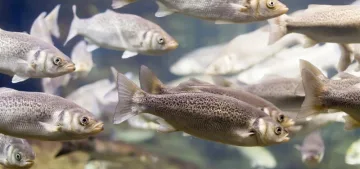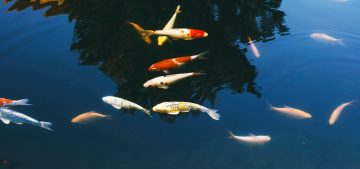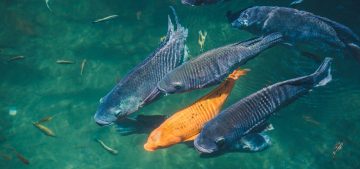No products in the cart.
Return To ShopNetworking for Success: The Benefits of Joining Professional Fisheries Organizations
Introduction: In the world of fisheries biology, networking is not just about expanding your professional circle; it’s about building a community of like-minded professionals who can share knowledge, experiences, and opportunities. Joining professional fisheries organizations is a crucial step for any biologist looking to enhance their career. This blog post explores the benefits of such memberships and how they can open doors to numerous possibilities.
Building a Professional Network: A strong network can provide support, offer mentorship, and open new avenues for collaboration. Professional organizations bring together experts from various aspects of fisheries science, allowing members to connect with peers, senior professionals, and influencers in the industry.
Access to Exclusive Resources and Information: Membership in professional organizations often comes with access to a wealth of resources:
- Journals and Publications: Stay updated with the latest research and trends in the field. Members often have access to a library of case studies and peer-reviewed papers that are crucial for staying abreast of new methodologies and scientific discoveries.
- Workshops and Training Sessions: Enhance your skills and knowledge through specialized training and workshops conducted by experts.
Conferences and Symposia: Conferences and symposia are vital components of professional development in fisheries biology. These events provide a platform for presenting research, learning about the latest advancements, and discussing challenges and solutions in the field. Examples include:
- Local and Regional Meetings: Engage with local chapters of organizations like the American Fisheries Society (AFS) at their Annual Conference or specific regional group meetings. These gatherings are ideal for connecting with local professionals, understanding regional issues, and participating in workshops and sessions tailored to local ecosystems.
- Annual Conferences: The AFS Annual Conference, for instance, brings together a wide array of professionals from across the nation and around the world. This event offers workshops, technical sessions, and keynote speeches from leading experts, providing members with insights into global trends and research findings.
- Specialized Symposia: These are often more focused on specific topics within fisheries science and provide a deeper dive into niche areas. Participating in these symposia can enhance your expertise and help you become a thought leader in specific areas of the field.
Engaging with Research and Authors: Constant exposure to new case studies and research papers is not only educational but also a strategic networking tool. Members can:
- Reach Out to Authors: If a particular study or methodology piques your interest, most organizations provide the means to contact the authors directly. This can lead to fruitful discussions, mentorship opportunities, and even collaborations.
- Stay Informed on Methodologies: Regularly reading up on the latest research allows you to adopt innovative practices and stay ahead in your field. It also provides a talking point for engaging with key researchers and professionals at conferences and meetings.
Career Development Opportunities: Professional organizations frequently provide career services such as job boards, career advice, professional development grants, and more. These resources are invaluable for job seekers and those looking to advance in their careers.
Advocacy and Influence: These organizations often play a pivotal role in shaping policies and regulations that affect the fisheries industry. Being a part of such groups gives you a voice in these discussions, potentially influencing important decisions that impact fisheries management and conservation.
Continuing Education and Certification: Many organizations offer continuing education programs and certifications that can bolster your credentials and demonstrate your commitment to the field. These qualifications are often recognized globally, further enhancing your career prospects.
Conclusion: Joining a professional fisheries organization is more than just a career move; it’s a strategic decision that can enrich your professional life and contribute to the broader field of fisheries science. Whether you’re looking to expand your knowledge, influence policy, or find the next step in your career, these organizations can provide the platform you need to succeed.








Add comment